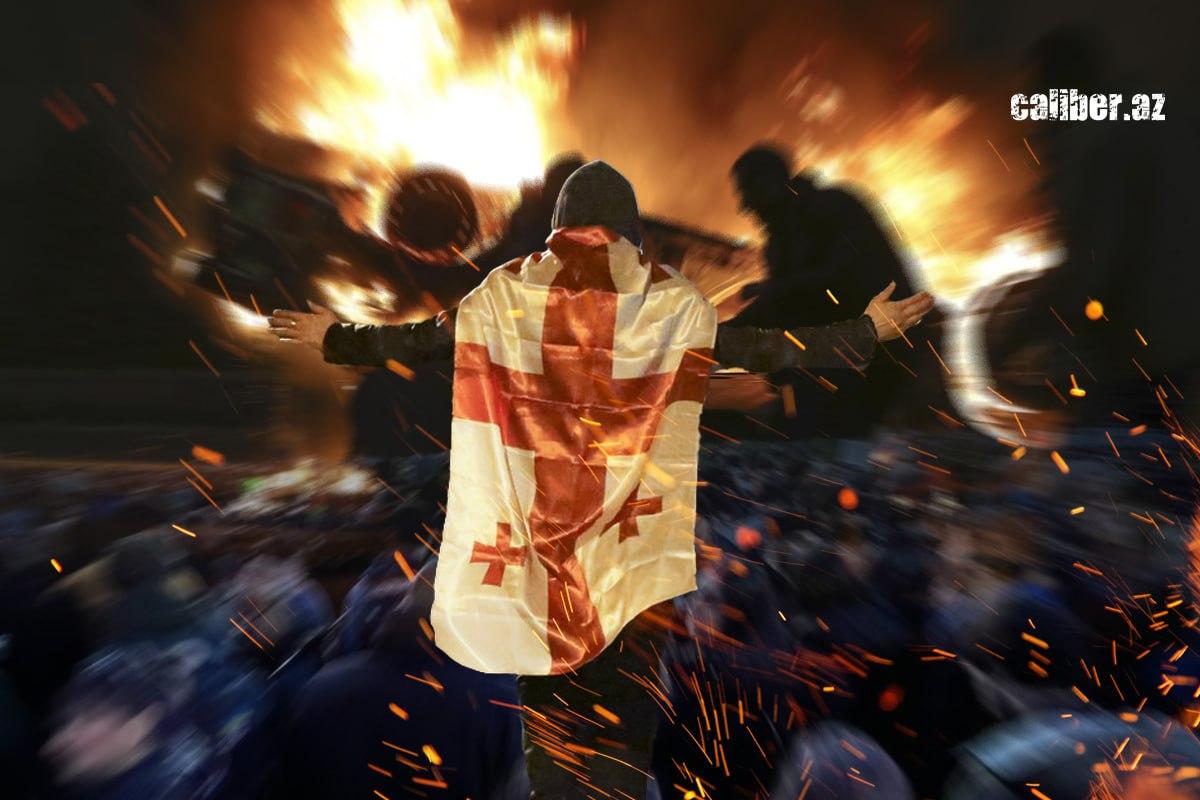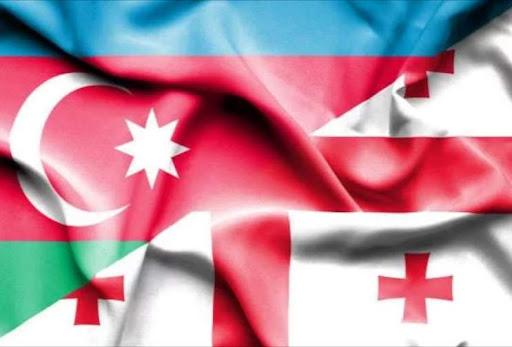Western forces behind unrest in Georgia The push for regime change
The events of November 29-30 in Tbilisi showed that the West has begun real actions to seize power in Georgia. There is every reason to believe that the Georgian statehood has essentially been "sentenced" by the West, to send a message: "So that others would think twice." In the current era of "total globalization," it is important for its initiators to nip in the bud any attempts by small countries to defend their national interests, traditions, and religious identity. After all, the example of a successful "rebellion on the globalist ship" could encourage other countries to "disobey" the externally imposed agenda. Therefore, it seems that Georgia is being "punished as an example."
The situation is further exacerbated by the fact that the Georgian people have come face-to-face with the direct agents of hostile forces within their country, led by President Salome Zourabichvili, who holds her position until December 16, 2024. Zourabichvili, who remains a French citizen, previously worked in the French Ministry of Foreign Affairs, and today has self-proclaimed herself as the "only legitimate Georgian authority." The dispersal of the opposition rally on the night of November 28, "inspired" by Zourabichvili, did not lead to the end of the protests. However, very dangerous trends emerged the following day.

Neither Zourabichvili nor opposition leaders appeared at the rally on the evening of November 29, but the protest was larger than the previous day. It also appeared more aggressive. Protesters were provided with protective gear, and there are strong indications that the dispersal of the rally on the night of November 29-30 will not be the end of it. The West has consciously adopted a course to stir up chaos and civil war in Georgia, aiming to make the Georgian example a model of "punishment for disobedience" to Washington and Brussels.
The most interesting thing is that even the most ardent participants in the protests are at a loss when asked: what will happen if the Georgian Dream leaves, aside from vague phrases about some "European future," which, they claim, the Georgian Dream has "stolen" from the people. Western curators no longer bother to provide the "pro-European" Georgians, whom they are using as "cannon fodder" to push for protests, with any concrete vision for the country's future. "Pro-European" protesters are deliberately incited against the institution that enjoys the greatest trust and respect in Georgian society—the Georgian Orthodox Church. This once again proves that Georgia has been "sentenced" by the West, as it refused to blindly obey on almost all fronts, including religious matters. The Georgian Orthodox Church is not only one of the most conservative in the world, but it has also severed all ties with the ecumenical movement and categorically rejects involvement in the formation of a "unified world religion," which, by all indications, is being prepared under the patronage of the Vatican.
The protests in Georgia are openly being led by foreign nationals or their little-known "hired workers" from pro-Western NGOs. This marks a stark contrast between the unrest in Georgia and the Ukrainian "Maidan." In Ukraine, despite being pro-Western, key roles in the protests were played by Ukrainian politicians, and as a result of the 2014 Maidan, Ukrainian oligarch Petro Poroshenko became president. In the current Georgian protests, local Georgian politicians, even leaders of opposition parties, have been pushed into the background—replaced by direct foreign leaders and coordinators.
Today, the West is directly intervening in Georgia’s internal affairs. The European Union Ambassador to Georgia, Pawel Herczynski, behaves like a vice president, and Western ambassadors and representatives in Tbilisi are openly directing the protests and, in effect, waging a hybrid war against Georgia's democratically elected government. Meanwhile, pro-Western propaganda not only accuses China, Russia, and other countries of engaging in hybrid wars and allegedly controlling the Georgian Dream, but also labels Georgians who stand for their country’s sovereignty as either "Russians" or "Russian slaves."
There are serious concerns that the West's plan for Georgia is to establish its foothold in the country through NGO funding mechanisms and impose its own agenda, with the primary goal being civil conflict and even escalating the situation into a civil war. These plans could involve the creation of NGO militias, LGBT camps, and ultra-liberal extremists. Through NGOs, the West is already attempting to brainwash Georgian society to the point where territorial integrity and the return of lost lands are no longer even subjects of political discourse. Their principle seems to be fostering unrest and a "revolution" to destroy Georgian statehood, the church, and the family, eventually leading to direct foreign control over whatever remains of Georgian society.

On one hand, it may seem like a complete repetition of the 2014 Ukrainian scenario—street battles, violence against the police, and so on. But it appears the situation is much more serious, precisely because the organizers of the unrest are increasingly focusing not just on management but also on the direct involvement of potential militants and provocateurs being sent into the country from abroad.
There is information that a large number of provocateurs have already been brought into Georgia from Balkan countries, Eastern Europe, and the Baltic states, with the presence of armed saboteurs among them not being ruled out. There is a likelihood that the organizers of the unrest will deliberately provoke violence, at a certain point opening fire on the protesters with firearms, and naturally, the blame for this will be placed on the Georgian government.
It is true that, outwardly, residents of the Baltic states differ from the local population of Georgia, making it difficult to confuse them with Georgians. However, to destabilize the situation, it seems that the West has a vast "reservoir" of potential militants and provocateurs stationed near Georgia’s borders, who, at first glance, may be hard to distinguish from locals. This involves Armenia, which has pivoted to the West—its politicians have, in the past, offered their people to Western forces as "disposable material." Armenian media, particularly the pro-government Armenian Telegram channel Bagramyan26, cover events in Georgia far more aggressively toward the Georgian government than even Georgian opposition outlets.
In fact, Armenian pro-government media now act as an informational resource for the West, provoking an escalation of the situation. There are strong indications that potential provocateurs and militants, funded by Soros, are being massed and sent to Georgia from Armenia. This is particularly concerning since many members of Armenia's law enforcement and intelligence services come from Georgia and hold dual Armenian and Georgian citizenship. Furthermore, among Armenians themselves, pro-Western media are promoting the idea that a "revolution" in Georgia serves Armenia’s interests and its revanchist claims, as it targets not only Russia, which is despised by today’s pro-Western Armenian nationalists, but also Türkiye and Azerbaijan.

The most interesting aspect is that, unlike the Ukrainian scenario, where Ukrainian nationalism was still utilized, the West in Georgia is not even attempting to focus on Georgian nationalism. Everything that could prompt Georgians to reflect on their national identity, pride, history, and traditions is deliberately pushed into the background. There is an aggressive imposition of "European values" and the fostering of complete and unquestioning submission to external dictates. It is clear that if the West’s plans for Georgia succeed, the national and religious identity of the country's citizens will be crushed almost instantly.
The West is attempting to apply the same scenario in Georgia that it successfully executed in Ukraine, which pulled the Ukrainian people into a war against Russia, the end of which is still not in sight. But while Ukraine is still maintained as a state and a "ram" against Russia, and Ukrainian refugees manage to find some refuge in EU countries, Georgia and the Georgian people could be destroyed without any mercy, turning the territory of Georgia into the battleground of a "great Caucasian war."
The events unfolding are an internal matter for Georgia, and foreign forces and countries should not interfere in this process but instead respect the results of the elections conducted on democratic grounds. The Georgian people must demonstrate wisdom and not become a tool in the hands of any external force. This will be very difficult, but hope lies in the fact that Georgia is not alone. The fact that the West wants to create a hotspot of instability in Georgia is unacceptable to Azerbaijan and Türkiye, and the support of friendly countries for the Georgian government and the Georgian people is critically important today, given the de facto war declared on their country by the West.
Vladimir Tskhvediani, Georgia, for Caliber.Az








